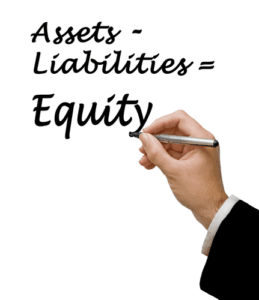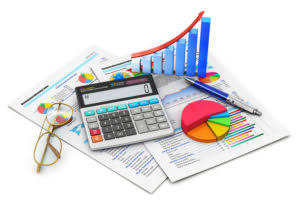What Is Bookkeeping? Getting Started in Accounting

Start by reaching out to other business owners for recommendations, searching online for providers and checking out reviews on Google or Yelp. If you don’t feel comfortable with a freelancer, there are many firms that offer bookkeeping services as well. While there are a myriad of courses available for bookkeeper education and training, a good deal of bookkeepers are self-taught since there are no required certifications needed to work as one. The skills needed to become a successful bookkeeper are often acquired through working in a career in the finance industry or even by balancing your personal budgets. Many bookkeepers hone and develop their expertise over time while others opt to complete seminars, read books or take online classes.
Do I have the time?
While it’s not always necessary to have a degree, some companies will look for candidates with coursework in accounting. According to the US Bureau of Labor Statistics (BLS), the median salary for bookkeepers in the US is $45,860 per year as of 2021 [1]. You can sometimes choose between full-time https://www.bookstime.com/ and part-time positions, and you may go to work in an office or work from home. If you’re ready to build job-ready skills in bookkeeping, consider enrolling in the Intuit Academy Bookkeeping Professional Certificate. Learn more about what bookkeepers do and how to get started in this career.
History of bookkeeping

Much of the work that goes into bookkeeping is more administrative than anything else. For example, your bookkeeper will need to make sure that every transaction in your business’s financial records has an entry. This could range from paying employees or purchasing supplies for your office.
So, what does a bookkeeper do all day?

With well-managed bookkeeping, your business can closely monitor its financial capabilities and journey toward heightened profits, breakthrough growth, and deserved success. Without bookkeepers, companies would not be aware of their current financial position, as well as the transactions that occur within the company. Bookkeepers make sure the information in the books is accurate and that the books are reconciled each month. Data entry involves entering your business’s transactions into your bookkeeping system.

A small business can likely do all its own bookkeeping using accounting software. Many of the operations are automated in the software, making it easy to get accurate debits and credits entered. Bookkeeping and accounting are commonly mistaken for each other; however, they are not two interchangeable terms. Book balancing bookkeeper definition is the foundation for accounting, providing organized financial records that accountants use to generate meaningful insights and reports. Both a cash and accrual basis can work with single- or double-entry bookkeeping. In general however, the single-entry method is the foundation for cash-based bookkeeping.

What are the five elements of a good incident report?
These business activities are recorded based on the company’s accounting principles and supporting documentation. The advent of accounting software significantly lessened the tediousness of bookkeeping by handling debits and credits for you in the background. And technologies like optical character recognition (OCR) and bank feeds have come just short of fully automating the traditional bookkeeping process. Data entry can now happen as soon as you snap a photo of a receipt with your smartphone.
Components of Bookkeeping
- In retail or other non-office environments, bookkeepers may work in a back-office or stockroom area, away from customers and other employees.
- The practice of Bookkeeping is a systematic process of recording, organizing, and maintaining financial transactions and records.
- Bookkeeping is the meticulous art of recording all financial transactions a business makes.
- The debit column is then totalled, and then the credit column is totalled.
- The person in an organisation who is employed to perform bookkeeping functions is usually called the bookkeeper (or book-keeper).
- In colonial America, bookkeepers would record transactions in a “wastebook”—so called because the data would eventually find its way into an official ledger and the original book would go into the trash.
- Read some of our recent reviews and see what it could be like having Bench on your books.
For the past 52 years, Harold Averkamp (CPA, MBA) has worked as an accounting supervisor, manager, consultant, university instructor, and innovator in teaching accounting online. With this in mind, let’s break these methods down so you can find the right one for your business. You don’t need any special training to be a bookkeeper—you don’t even need a bachelor’s degree. Learners are advised to conduct additional research to ensure that courses and other credentials pursued meet their personal, professional, and financial goals. Coursera’s editorial team is comprised of highly experienced professional editors, writers, and fact… Here’s an example of how you’d enter a transaction in the Intuit software.
- An accountant can perform bookkeeping tasks, but the title also involves other responsibilities.
- It’s a key component of the accounting process and can be done as frequently as daily, weekly or monthly.
- Keeping these records as current as possible is also helpful when reconciling your accounts.
- An employer may request that you have a secondary school diploma to work in bookkeeping, but beyond that, requirements will vary.
- All in all, bookkeeping simply means tracking your business’s expenses and income.
- While there is a general overlap between the two professions, there are a few distinctions that are later discussed in this article.
